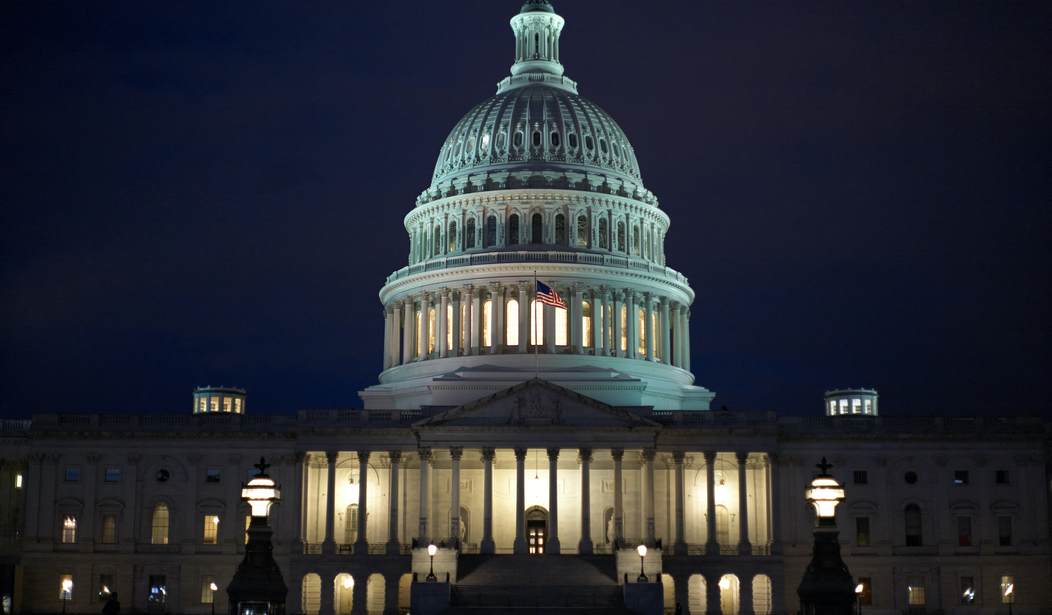Spring is just around the corner, and the federal government’s finances are on thin ice. New projections show that federal debt is so high that just paying the interest on it already costs more than defense spending this year. Debt service will exceed Medicare spending next year.
Half of this year’s borrowing – more than $2,500 per U.S. resident – merely pays interest on what’s already on the country’s credit card. Our only “benefit” from those payments is avoiding default, which would unleash economic, political, social, and security chaos.
Default-driven chaos is our future if Congress carries on as usual.
When a debt-laden U.S. government looks especially risky, investors will demand higher interest rates. This will set off spiraling interest rates and panic. With few alternatives for quick action, Congress would swallow immediate, massive tax hikes and sudden cuts to U.S. military presence abroad.
The Federal Reserve’s limited powers would be no match. The Fed lost control in 2021 when President Biden and congressional Democrats’ spending and borrowing binge produced the highest inflation in 41 years and then rapid rises in interest rates. High inflation has forced a typical family to spend more than $11,000 more per year for the same standard of living. The costs of borrowing for mortgages, cars, credit, and much else has gone up a lot too.
That’s just a taste of a debt crisis. Double- or even triple-digit inflation is possible. Borrowing could be unavailable at almost any price. Paychecks might get delayed. As for hopes of a soft landing, who exactly could or would bail out the United States government?
Recommended
In the meantime, ever-growing debt burdens steal investment funds from the private sector. It undermines creativity, opportunity, and living standards. Excessive debt casts shadows on everything. This debt drag slows us down and makes us poorer.
This is the poisonous fruit of a deeply dysfunctional federal budget system. Presidents and Congress routinely miss deadlines. Unchecked borrowing undermines the present and steals from the future.
Congress’ annual process is only the appropriations bills, which are 27 percent of spending and no revenue. Appropriations bills get enacted late (if at all) and under tight leadership control. Most members of Congress are shut out of budgeting except as rubber stamps to avoid shutdowns.
Thank goodness, then, that some members of Congress are developing solutions to these problems. Better still, their legislation has or is poised to have broad, bipartisan support.
Rep. Blake Moore (R-UT) and Rep. Marie Gluesenkamp Perez (D-WA) have provided a roadmap in their Comprehensive Congressional Budget Act.
A comprehensive budget with 100% of spending and 100% of revenue, including tax breaks, is crucial to changing the status quo. Then, all committees and members could shape budget priorities and chip away at problems every year. Tough-but-necessary decisions would become more politically survivable.
Congress needs technical information in the president’s budget request to start its budget process on time. The White House usually misses this first-Monday-in-February deadline. Sen. Joni Ernst (R-IA) and Rep. Buddy Carter (R-GA) recently introduced the SUBMIT IT Act so Congress would get the budget request before the president could give the State of the Union address.
Finishing budget legislation on time helps the next cycle start. It also promotes a bottom-up Congress that budgets more efficiently. Sen. James Lankford (R-OK), Sen. Maggie Hassan (D-NH), Rep. Jodey Arrington (R-TX), and Rep. Jimmy Panetta (D-CA) have proposed the Prevent Government Shutdowns Act. If Congress doesn’t complete appropriations by the new fiscal year, they’d stay in DC focused on finishing the job but without interrupting services for the American people.
Finally, Congress needs smart guardrails. Statutory guides from Sen. Mike Braun (R-IN) and Rep. Tom Emmer (R-MN) in the Responsible Budget Targets Act could balance the budget (excluding interest) over the medium term while keeping emergency response from becoming a loophole. A well-crafted constitutional amendment for balanced budgets like Arrington’s Business Cycle BBA or Braun and Rep. Nathaniel Moran’s (R-TX) Principles-based BBA would bolster statutory rules. Automatic enforcement could take a new, “incremental” approach, and meeting reasonable targets could even trigger automatic increases in the debt limit.
Congress can choose to set the stage for a brighter future. These and other budget upgrades would strengthen democracy, increase opportunity, protect America’s role in the world, and increase the federal government’s value for the American people. They could also, if adopted in time, put the risk of debt crisis chaos on ice.
Kurt Couchman is senior fellow in fiscal policy at Americans for Prosperity.

























Join the conversation as a VIP Member